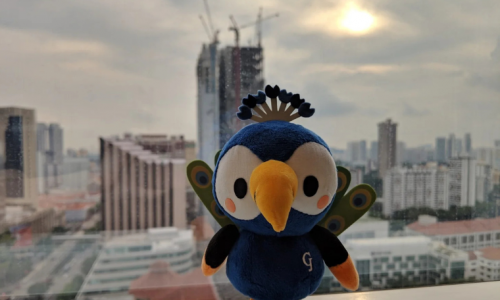We recently released an article on the Guidelines Flexible Work Arrangements (FWA) to keep all employers informed before its launch on 1 December 2024.
To understand FWA guidelines deeper, we have gathered an in-depth FWA Frequently Asked Questions (FAQ) for employers. This article will address some of your concerns regarding flexible working arrangements and how to effectively implement them in your organisation. On top of our FAQ, we’ve also added FWA downloaded templates in both English and Japanese for all employers to use!
FWA FAQ for employers:
1. What if FWA affects my employee engagement and collaboration compared to working in the office?
Employers can set designated ‘in-office’ days synced with the team’s schedules. This arrangement allows for face-to-face discussions, brainstorming sessions, and team-building activities.
Schedule meetings with the agenda to foster knowledge sharing, tackle challenges faced and collaborate on projects; organise virtual team-building activities to increase morale and engagement rate.
2. How can I best support my remote employees in achieving their goals?
Employers are encouraged to trust and be flexible with their employees. You can also set goals to foster accountability and support business and individual growth.
Follow up by conducting performance evaluations to ensure targets and expectations are being achieved. When employees are included in determining individual goal setting, they are more inclined and driven to achieve them.
You can consider investing in project management tools for task tracking to ensure everyone is on the same page, such as monday.com, Trello, Notion, and more.
Focus on results and achievements, and refrain from micromanaging your employees.
3. I’d like to establish clear expectations around communication and response times for my remote team
Employers can establish guidelines to mutually agree to remain contactable as and when required or within a designated timeframe. Teams can also schedule meetings with specific agendas to ensure alignment and accountability.
Maintaining a respectful boundary especially outside of work hours is also important.
4. Data security is critical when working remotely. What steps can we take together to create a secure remote work environment?
Employees working remotely may be accessing company data and systems from unsecured networks. Employers might be concerned about data breaches, unauthorised access, and ensuring proper data security protocols are followed at home.
Employers are encouraged to develop clear policies on data access, password management and storage, and acceptable use of company devices and networks. Invest in cybersecurity training to educate employees on the best practices to protect sensitive information.
Utilise secure cloud-based solutions for higher security measures while sharing and storing data.
5. Do employers need to offer all types of FWA available?
This is up to the employer’s discretion. There is no hard and fast rule, but it is encouraged to consider what the best work arrangements are without compromising the organisation’s performance.

6. Can employers down some rules, such as only confirmed employees are eligible for the FWA?
The TG-FWAR Tripartite Guidelines on Flexible Work Arrangement Requests only covers all employees who have completed probation, the duration of which may be determined by employers.
7. Are employers allowed to retract or work with staff for other alternatives if FWA impacts the company’s cost months down the road?
Yes, the employer has the discretion to address all business needs by making necessary changes.
8. My company has a hybrid working arrangement, and there is no formal process for FWA. Do I still need to develop a formal process?
No, you do not, but according to the Tripartite Guidelines, you must have a strategic method to manage formal requests made.
9. How do I handle dissatisfaction if some of my employees can benefit from FWA but others cannot due to their roles?
It is recommended that you work together with the employees to find reasonable alternatives and accommodations. This could range from staggered working hours, seasonal compressed work schedules or flexi-load.
10. Is the employer allowed to remove FWA from a particular employee if they are unproductive or abusing the FWA policy?
This is the employer’s prerogative, especially where performance and business needs are not met. However, before the FWA policy is rolled out, it’s advised to have a constructive discussion or training to relay expectations and deliverables to which employees must adhere.

11. Are employees required to provide any supporting documents along with their FWA request?
Employers will make this decision to assess the formal request fairly and objectively. However, it’s important to exercise sensitivity while doing so.
12. Does telecommuting include employee's who request to work overseas?
The Tripartite Guidelines for FWA only cover within Singapore. FWA overseas depends on the employer’s discretion, e.g., considering the various compliance and regulations they might encounter and working together with specific providers.
13. How can Human Resources address the management’s concerns regarding the productivity of employees being affected?
Before a full rollout, the FWA is encouraged to undergo a pilot or test run with specific employees, which can last 2-3 months.
14. What are the consequences for a company if an employee launches complaints to TAFEP regarding FWA?
If an employee submits a formal request but is rejected, an internal grievance procedure should be in place to resolve such matters. If necessary, TAFEP will investigate employers to see if the handling of formal requests is properly managed with the formal request system in place.
TAFEP will not be entertained on a case-by-case basis.
15. Can employers ask employees to use their annual leaves to attend to their personal needs before requesting FWA?
The employer should understand the need behind the request, but it will be up to the employer’s discretion to see which arrangement works for both parties.
16. If an employee gets hurt while on FWA, will the employer be held responsible for the injury?
It is the employer’s responsibility to advise your employees to exercise safety precautions regardless of any work done. For further information, please refer to WICA guidelines.
For further enquiries, please email enquiry@goodjobcreations.com.sg or visit the TAFEP website
Please share with us any additional FWA FAQ questions for employers that should be on the list at comms@goodjobcreations.com.sg
For hiring enquiries, please contact: enquiry@goodjobcreations.com.sg
For job opportunities, please email: apply@goodjobcreations.com.sg





